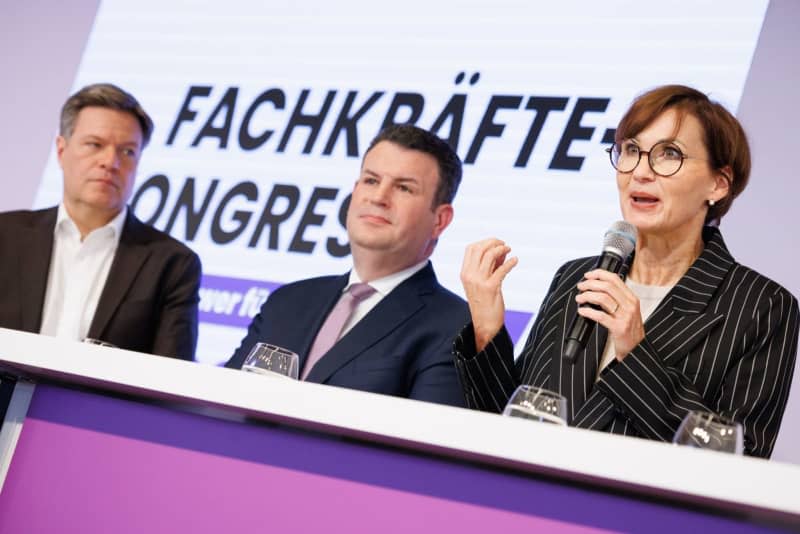Germany’s struggle to address its shortage of millions of skilled workers could cost the country its place as one of the world’s leading economies if the government does not act soon, said Labour Minister Hubertus Heil on Monday.
“If we don’t address the problem of labour and skills shortages now, it will become the main obstacle to growth in Germany,” Heil said in Berlin at a conference on the predicament organized by the government.
There was a growing need to “get all people who want to work in the country into work, into training,” said Economy Minister Robert Habeck. “In the long term, this will be the decisive question as to whether Germany grows and whether prosperity in the country can increase or be maintained.”
Hundreds of thousands of jobs and apprenticeships are currently vacant, he said. “You have to be blind if you can’t see that there will be more in the future,” said the minister.
Labour Minister Heil cited stable energy supplies, accelerated planning and securing the skilled labour base as the most important steps to ensure that the German economy remains strong.
“Despite all the talk, we are actually a strong country, but we need an update,” said Heil. When it comes to securing skilled labour, he said, Germany was “working against the clock.”
Seven million skilled workers will have gone into retirement by 2035, Heil said, citing a study by the Institute for Employment Research. However, 1.6 million 20 to 29-year-olds have no initial vocational training, he added.
Education Minister Bettina Stark-Watzinger said there were still more than 45,000 people each year “leaving school without a qualification.”
Young trainees invited to the conference complained of a lack of vocational education at school. Plus, taking up an apprenticeship or a vocational training was still regarded as inferior to studying at university in Germany, they said.
Hundreds of representatives from business, associations and society attended the one-day congress.
“Securing skilled labour is securing prosperity,” Heil told dpa ahead of the conference.
“There are currently more people in work than ever before – over 46 million. Nevertheless, we need more skilled workers and labour to fully exploit our potential as the third strongest economy,” Heil said.
Heil said that the aim was to show that Germany’s governing coalition was pulling out all stops to recruit skilled labour.



